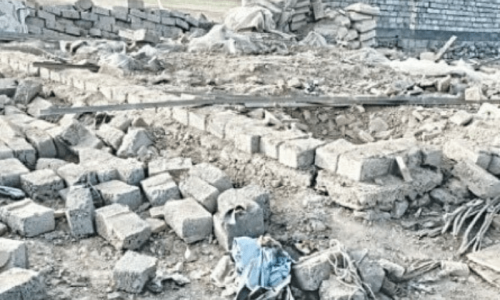PESHAWAR, April 25: Civil society representatives have urged Members of the National Assembly to make effective amendments for removing lacunas in the Anti-Women Practices Act 2011.
During a discussion on the Act and why it had not been effective in curbing practices depriving women of some of their basic rights, the speakers suggested that amendments were needed to remove lacunas in the law. The discussion was organised by Aurat Foundation here on Wednesday.
Farhad Baig, programme officer of Local Action to Combat Gender Injustices, pointed out certain lacunas in the Act. He said that swara was made non-cognizable offence under this Act, which meant that police could not interfere in the jirga proceedings on swara, vani or badle sulah cases – all related to marrying a girl to someone to settle some dispute.
“In such a situation, by the time police come with warrants the fate of the girl may have been decided in a swara case,” said Mr Baig while explaining how the amendment in the law made it weaker as far as cognizance of the swara cases was concerned.
The participants hailing from women rights organisations also pointed out that the new amended Act also lacked definitions and did not clarify whether forced marriages under swara customs would be dissolved or who would decide it when such a case was taken up by a court.
In the Pakistan Penal Code, Act XLV of 1860, the 310-A section has been substituted as, “Whoever gives a female in marriage or otherwise compels her to enter into marriage as badle sulah, vani, or swara or any other custom under any name, in consideration of settling a civil dispute or a criminal liability, shall be punished with imprisonment….”
Mr Baig said that “whoever gives…” only puts the burden of this crime on the parents or elders of the girls whereas the other party has not been held responsible. The minimum punishment for such a crime has also been set at less than 10 years and as such the accused would easily get bail in such offences, he pointed out.
Discussing “Prohibition of depriving women from inheriting property” Chapter XXA Offences against women, “Whoever by deceitful or, illegal mean deprives any woman from inheriting any movable or immovable property at the time of opening of succession shall be punished with imprisonment ….” Mr Baig observed that this section was restrictive in nature since women ‘under duress’ were often deprived of their inheritance.
He proposed that amendment like “whoever deprives any woman by any means …” should have been more beneficial to women.
Mr Baig said that so far the rules were not framed which was why this Act had not been implemented.
He said that it had not been mentioned that this Act extended to the whole country. “Such loopholes in this piece of legislation make it a weak law,” he said.
The participants said that the MNAs should consult legal experts about a piece of legislation before tabling its draft in the National Assembly so that any lacunas could be removed well in time.












































Dear visitor, the comments section is undergoing an overhaul and will return soon.